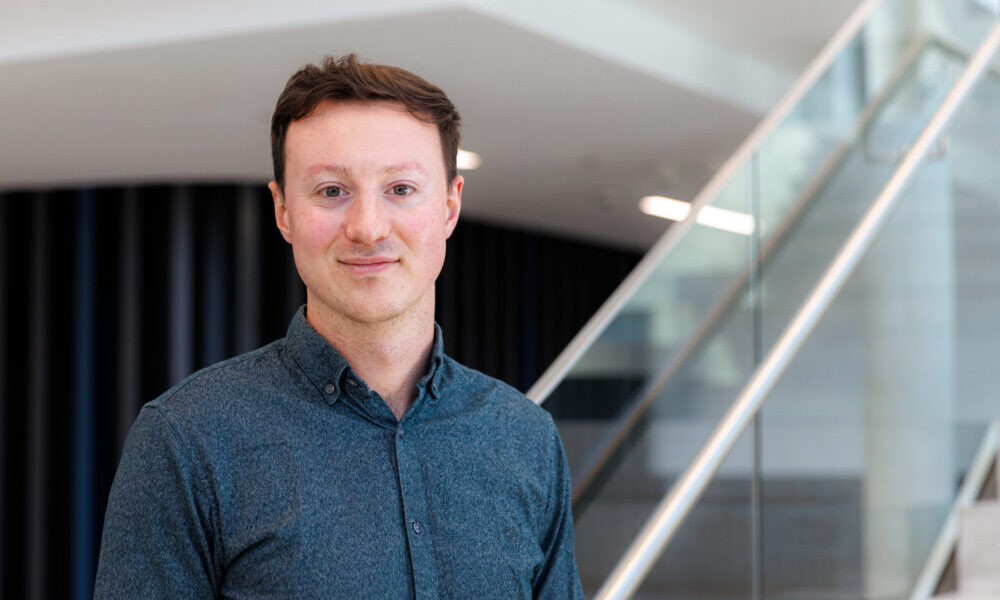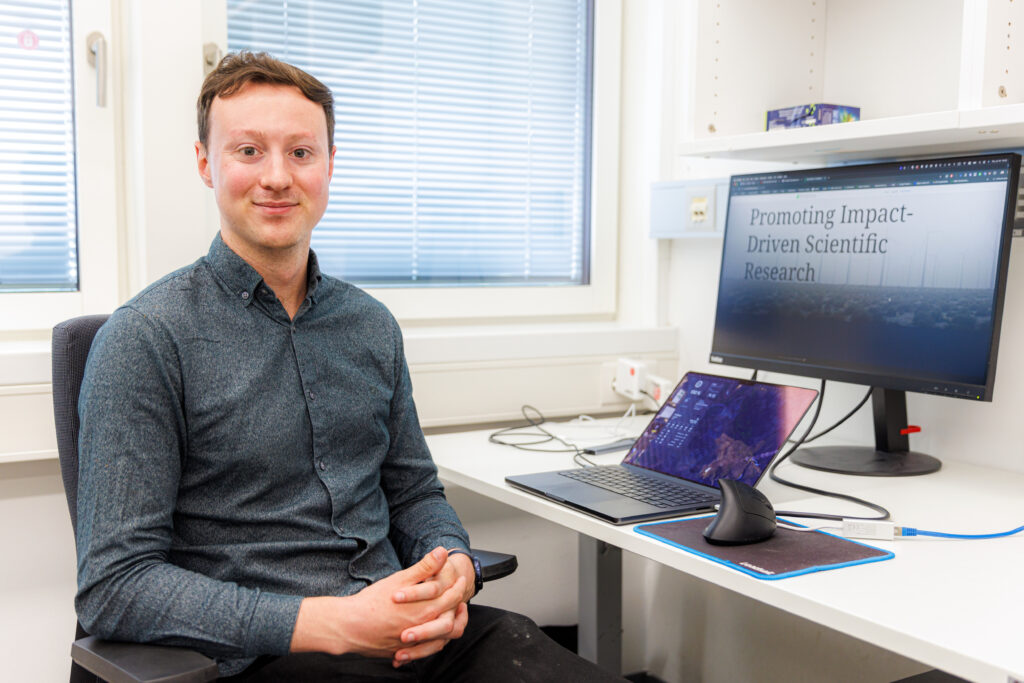
Promoting impact-driven science
Promotion of Ethics in Science (PROMETHEUS) is an EMBL-born grassroots initiative to promote and optimise impact-driven science

One of the most prominent challenges facing scientific research today is coordinating the scientific community to best serve global needs and ethical goals. We had a chat with Donnacha Fitzgerald, now a bridging postdoc in EMBL Heidelberg’s Huber group, who initiated a new movement during his PhD – Promotion of Ethics in Science (PROMETHEUS) – to address this challenge.
What inspired you to start PROMETHEUS?
There is a quote from Voltaire: “Judge a man by his questions rather than by his answers.”
Many scientists, including myself, were drawn to research because of the power of science for human progress; I believe few advancements have driven human progress as much as the Scientific Revolution, which helped pave the way for the Enlightenment and Industrial Revolution in the 17th and 18th centuries.
However, despite its immense track record, science is rife with inefficiencies (e.g. duplication of efforts, publication bias, and the replicability crisis), and the distribution of resources in science poorly reflects global needs. Furthermore, choosing impactful research projects remains one of the most elusive and qualitative aspects of being a scientist, despite being the most important determinant of societal impact.
I started PROMETHEUS to build a community with the mission to guide science towards impact. Our motivation is to create a framework to better enable scientists to choose what problems and questions to pursue. I think this is the right time for this, as globalisation, open science, and advancements in the interface of ethics and economics have presented unique opportunities to optimise the pursuit of knowledge for the global good.
What are the main goals of this movement?
As science is global and multidisciplinary, diverse input is required to achieve this goal. PROMETHEUS aims to build a coordinated effort among the scientific community to explore the potential of impact-driven science and empower scientists to pursue their most impactful science.
Initially, we aim to grow an international alliance of scientists, science policymakers, ethicists, and relevant organisations to join forces in this mission. One of our goals is to identify quantifiable standards to guide research directions toward impact for both basic and applied sciences. Other aims include identifying imbalances in the distribution of resources between research topics against these standards and exploring mechanisms of science funding and coordination that could better enable impact-driven science. Ultimately, we want to empower scientists everywhere to pursue their most impactful science.
What made EMBL a good place to launch this initiative?
I’m immensely grateful to have had the chance to launch PROMETHEUS while at EMBL, which serves as the ideal birthplace. As Europe’s intergovernmental research institute for the life sciences, it embodies science without borders both as an intergovernmental and interdisciplinary organisation. Impact-driven science is global and requires diverse input. The basic science emphasis at EMBL has symbolic value for this movement, which needs to acknowledge, protect, and promote the role of fundamental research in the pursuit of impact-driven science. Furthermore, EMBL and its sister organisation EMBO are already highly active in related areas such as bioethics, open science, and research assessment reform.

PROMETHEUS has therefore been cultivated with input from a diverse subset of the scientific community over multiple years, including a wide network of advisors across many external organisations. I am deeply grateful to those who provided early encouragement while setting out on this vision, including Edith Heard, Alexander Aulehla and Jan Korbel, and especially to Lucia Schmitz and Giorgia Renne in EMBL Bioethics Services, who have been central to shaping PROMETHEUS and getting it off the ground through regular brainstorming, guidance, and support.
Why is it so important to focus on the impact of basic and applied research at the present moment?
In recent decades, healthcare and philanthropy have been transformed by the implementation of cost-effectiveness analysis. Its value lies in the fact that some courses of action are hundreds or thousands of times as cost-effective as others by metrics of utility (eg. cost-per-life-saved in global health interventions). In healthcare, patient lifespan and quality of life have been enhanced even in highly resource-constrained healthcare systems by selecting medical interventions with the greatest cost-utility. In philanthropy, more than a billion dollars have been channelled to the world’s most cost-effective charities in global health and poverty by charity evaluators such as GiveWell, estimated to have averted hundreds of thousands of deaths.
However, I believe that there is even more impact to be gained from applying such concepts in the scientific community than in the world of philanthropy. Firstly, global science is a much larger resource than global philanthropy, both in terms of money and personnel. Furthermore, as the impact of science is long-term, it is best positioned to serve society’s long-term needs and ethical goals, benefitting generations far into the future.
Experimenting with how scientists choose what problems to work on and how funding is assigned to better address global needs and achieve long-term ethical goals has enormous potential. This includes biomedical research, in which we can strive to reduce disease burden and improve well-being, but also across other areas of science, including environmental research where we can target climate change or biodiversity impact. A growing body of metascience research and data is already paving the way for this pursuit, including testing new funding mechanisms, leveraging network science to study the mechanisms underlying scientific progress, and steering experimental planning with AI. This presents the opportunity to re-evaluate science funding and coordination mechanisms to better support scientists in pursuing impact-driven science. This is not only relevant to the applied sciences but also to the basic sciences, which generate the knowledge on which the applied sciences depend.
How can others take part in PROMETHEUS?
As a starting point, we are bringing people together to research and publish key questions for our mission, including building an atlas of science funding distribution, investigating quantifiable values to guide different fields toward impact, and using AI to shape impact-driven science. We encourage you to check out our current list of projects and reach out if interested or to propose new directions!
The world of impact-driven science is vast, with many actors and stakeholders. This complexity should not hold us back but rather encourage us to be cautious, inquisitive, and incremental in pursuit of these ambitious goals. As PROMETHEUS grows, we are expanding its network to include a wider range of key expertise across scientific fields, economics, moral philosophy, and science funding. If you would like to get involved, support our mission, or simply keep in the loop about our future activities, reach out via our website or contact prometheus@scienceforimpact.org. We hope that as a community, we can set the stage for a positive, impactful, and enduring chapter in the progress of science.


